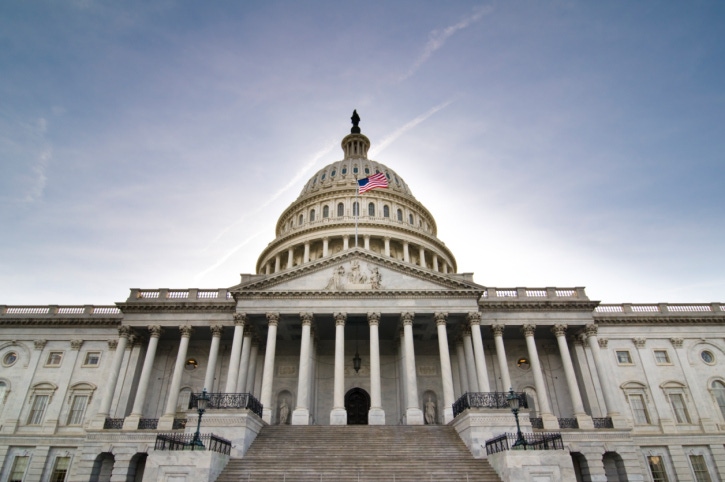Biden's American Families Plan
Legislative Watch: Ag concerned about stepped-up basis; Senate Republican infrastructure plan; Undersecretary for marketing and regulatory affairs.

President Joe Biden emphasized the importance of his $1.8 trillion spending and tax proposal, "American Families Plan," during a joint session of Congress on Wednesday. The plan provides funding for national childcare, pre-kindergarten, paid family leave, and tuition-free community college. It proposes tax-hikes on the "wealthiest" to help offset the costs.
The White House said the major objectives of the proposal are to make education more affordable, provide economic security for families and expand tax credits that help workers and families.
Regarding his proposed tax increases, Biden said the tax increases would not be imposed on any people making less than $400,000 per year. He said, "It's time for corporate America and the wealthiest 1% of Americans [to] pay their fair share."
The plan will:
Provide free preschool to all 3- and 4-year-old children.
Provide tuition-free community college for the first two years.
Increase Pell Grants to approximately $1,400.
Invest in community colleges.
Provide assistance to historically black colleges and universities, tribal colleges and universities, and institutions serving Hispanics, Asian-Americans, and Native American Pacific Islanders.
Ensure no lower- or middle- income families spend more than 7% of their income on child care for children under 5 years old.
Create a paid family and medical leave program.
Expand food benefits for hungry children - expand summer EBT (Electronic Benefit Transfer) to all eligible children nationwide and expand healthy school meals.
Tax Benefits:
Expand Advanced Premium Tax Credits
Extend Child Tax Credit through the end of 2025
Expand Child and Dependent Care Tax Credit
Expand Earned Income Tax Credit (EITC)
Tax Administration:
Allow the IRS authority to regulate paid tax preparers.
Require financial institutions to report information on account flows so investment earnings are subject to the same reporting as wages.
Increase budget for IRS Tax enforcement targeted at those with incomes above $400,000 a year.
Offsets:
Increase top income tax rate from 37% to 39.6% on the wealthiest, roughly $500,000 (depending on single or marital status).
End the preferential rate for capital gains for households making over $1 million a year (making the rate to 39.6%).
Eliminate stepped-up basis (for gains in excess of $1 million/$2.5 million married couples), unless gains donated to charity.
Eliminate carried interest tax expenditure.
Address Like Kind Exchanges (Section 1031) for gains greater than $500,000.
Address gaps in the 3.8% Medicare tax on earnings on the wealthiest.
A key concern of the agricultural community is the stepped-up basis provisions and its effect on family farms. This is going to be a major issue as Congress begins consideration of Biden's tax proposals.
USDA put out a press release emphasizing the tax proposal would encourage family farms to stay within the family and would not impact that many farm operations. According to USDA, "Under the proposal, unrealized capital gains (those that have never been previously taxed) are taxed at death above $2 million in gains per couple. But this won’t affect family farms that stay in the family. Under this proposal, estimates indicate more than 98% of farm estates will not owe any tax at transfer, provided the farm stays in the family. The tax the remaining less than 2% would owe would be on their non-farm assets."
Click here to view the White House fact sheet on America Families Plan.
Click here to view USDA's press release on the tax provisions of America Families Plan.
Senate Republican infrastructure plan
A group of Republican Senators is offering a $568 billion infrastructure plan as an alternative to President Joe Biden's $2.3 trillion proposal. The plan includes funding over a five-year period but does not indicate how the costs would be covered.
The plan proposes:
$299 billion for roads and bridges
$65 billion for broadband infrastructure
$61 billion for public transit
$44 billion for airports
$35 billion for drinking water and wastewater
$20 billion for railroads
$17 billion for ports and inland waterways
$14 billion for water storage
$13 billion for safety
This proposal is an effort to begin discussions with the administration on a possible bipartisan infrastructure compromise.
Undersecretary for marketing and regulatory affairs
President Biden plans to nominate Jennifer Moffit to be USDA's undersecretary for marketing and regulatory affairs. Moffitt currently serves as the undersecretary at the California Department of Food and Agriculture, where she served as deputy secretary from 2015-18. She also served on the Central Valley Regional Water Quality Control Board from 2012-15 and worked for American Farmland Trust from 2002-05. Moffit also worked on her family’s organic walnut farm and processing operation for 10 years. She is a graduate of Brown University.
Source: P. Scott Shearer, who is solely responsible for the information provided, and wholly owns the information. Informa Business Media and all its subsidiaries are not responsible for any of the content contained in this information asset.
About the Author(s)
You May Also Like



